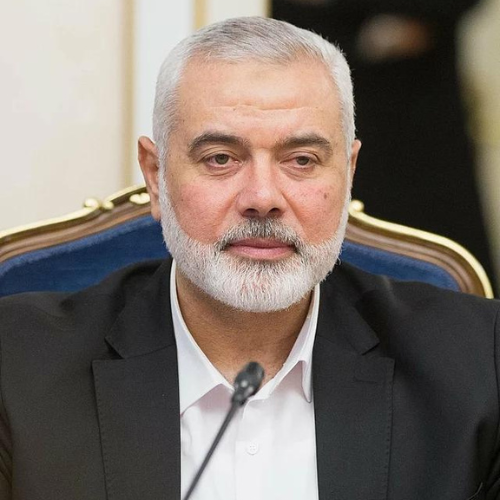In a dramatic development that could further inflame an already volatile region, Hamas has reported the assassination of its leader, Ismail Haniyeh, in Tehran. According to Iran’s paramilitary Revolutionary Guard, Haniyeh was killed in an Israeli airstrike on his residence, an assertion that has been met with silence from Israeli officials. This latest incident occurs against a backdrop of escalating hostilities and ongoing diplomatic efforts to broker a cease-fire.
Hamas has accused Israel of carrying out the strike that allegedly killed Haniyeh. The attack reportedly took place early on Wednesday, coinciding with Haniyeh’s presence in Tehran for the inauguration of Iran’s new president, Masoud Pezeshkian. The Revolutionary Guard has indicated that the incident is under investigation, but Israeli authorities have not yet commented. The lack of response from Israel is consistent with its usual practice of not acknowledging operations conducted by its Mossad intelligence agency.
Haniyeh’s Role and Significance
Ismail Haniyeh was a prominent leader within Hamas, a militant Palestinian organization engaged in a long-standing conflict with Israel. The recent escalation in violence, particularly the October 7 attack by Hamas that resulted in over 1,200 Israeli casualties and approximately 250 hostages, led Israel to vow retribution against key Hamas figures, including Haniyeh. His assassination represents a significant loss for Hamas and could impact the group’s operational capabilities and morale.
Implications of the Assassination
The timing of Haniyeh’s assassination is particularly notable. Having lived in exile in Qatar since 2019, his appearance in Tehran for the inauguration of the Iranian president marked a high-profile moment. The airstrike on his residence highlights the global reach of the Israeli-Palestinian conflict and the increasing involvement of regional powers.
In response, Hamas has declared Haniyeh a martyr and reiterated its commitment to the Palestinian cause. The group’s statement reflects its resistance to external pressures and its determination to continue its struggle despite personal losses. This rhetoric is consistent with Hamas’s longstanding position on the conflict.
Context of Regional Tensions
Haniyeh’s assassination comes amid broader regional tensions. Recently, Israel conducted an airstrike in Gaza that targeted members of Haniyeh’s family, resulting in the deaths of three of his sons and four grandchildren. This attack, coupled with the assassination in Tehran, highlights Israel’s strategy of targeting key figures associated with its adversaries.
Additionally, a recent Israeli strike in Beirut targeted Fouad Shukur, a high-ranking Hezbollah commander linked to the 1983 Marine bombing. This strike highlights the interconnected nature of regional conflicts, involving multiple actors beyond just Israel and Hamas. Hezbollah, like Hamas, is an ally of Iran, adding another layer of complexity to the situation.
Impact on Diplomatic Efforts
The assassination of Haniyeh also intersects with ongoing international diplomatic efforts. The Biden administration has been actively involved in negotiations aimed at brokering a cease-fire between Israel and Hamas. Key figures such as CIA Director Bill Burns and White House Coordinator Brett McGurk have been engaged in discussions with regional players. Haniyeh’s death could complicate these efforts, potentially exacerbating the conflict and undermining prospects for a diplomatic resolution.
Historical Context
Israel has a history of targeted assassinations as part of its strategy against militant groups and individuals associated with its adversaries. The assassination of Iranian nuclear scientist Mohsen Fakhrizadeh in 2020, carried out by a remote-controlled machine gun, exemplifies Israel’s approach to dealing with perceived threats from Iran and its allies. The killing of Haniyeh can be seen as part of this broader pattern of strategic targeting.
Humanitarian Impact
The ongoing conflict has taken a severe humanitarian toll. According to the Gaza Health Ministry, over 39,360 Palestinians have been killed and more than 90,900 wounded since the escalation began. This high number of casualties highlights the urgent need for a resolution to the conflict, even as incidents like Haniyeh’s assassination cast a long shadow over the prospects for peace.


